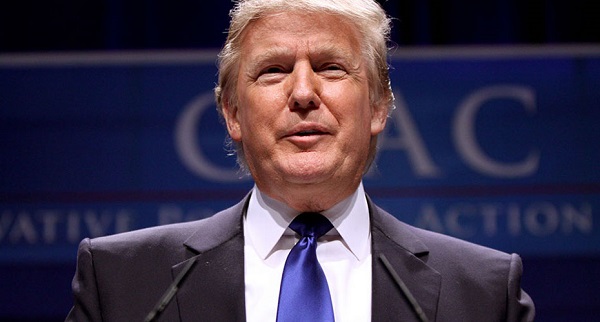President Donald Trump is perhaps one of the singular most controversial individuals today. On January 20th, 2025, he was sworn into the office of the President. He is now one of the most powerful individuals in the world, and he is well aware of it.
When the position of president was originally founded, it was argued that it needed to be a powerful and decisive position to cut through bureaucracy and carry out strong action. As Alexander Hamilton worded it in Federalist 70, there is an immense need for an “energetic executive.” Well, the power that Hamilton argued for has remained throughout the centuries. Today, executive power may be best seen through executive orders.
Executive orders are “official documents … through which the President of the United States manages the operations of the Federal Government,” as explained by the Bureau of Justice Assistance. However, the American Bar Association cautions that “executive orders are not legislation.”
On his first day in office, President Trump used this power for just about everything, from promoting plastic straws to renaming the Gulf of Mexico.
Many of these orders will not hold up in court and cannot be enforced, yet his strategy is to throw everything at the wall and see what sticks. While many Americans are focused on his executive orders about trivial matters, Donald Trump is focusing on his agenda.
According to the White House website, Trump recently passed a new Executive Order, number 13958, which aims to “[re-establish] the President’s Advisory 1776 Commission and [Promote] Patriotic Education.” One may be forgiven for questioning what constitutes a “patriotic” education, as, of course, the word is ambiguous in nature. That poses the issue: with no one to define what a patriotic education is, Trump may leave this open to interpretation and use it as a precedent to justify his actions.
Trump was known for his uncontrolled and extravagant campaign promises. One of the primary objectives of the agenda was to eliminate the Department of Education. In a video posted on social media in September of 2023, Trump exclaimed, “One other thing I’ll be doing very early in the administration is closing up the Department of Education in Washington, D.C., and sending all education and education work and needs back to the states.” He has just started to make good on this promise.
Maybe this sounds like a good thing? Each state is different and has different needs, right? Absolutely. However, the quality of education varies exponentially from state to state. Leaving educational resources to the states alone would result in an augmented difference.
The federal Department of Education has a pivotal role in making education accessible to all. It is not, in fact, futile–as Trump seems to believe.
The Department of Education was created in 1979 by President Jimmy Carter. It consolidated many educational services found under various federal departments into a singular entity.
Despite education varying wildly from state to state, the Department of Education describes its responsibility to “[fill] gaps in State and local support for education when critical national needs arise.” By this description, the purpose of the department is to supplement state education. As stated previously, Trump believes it is necessary to give the responsibilities of education “back to the states.” But how is this possible when the states already have much of this obligation, and the purpose of the department at a federal level is to augment state function?
The federal department’s mission is to ensure equal access to educational resources. More specifically, it regulates and implements various programs regarding school infrastructure, minority education, discretionary grants, student support services, disaster recovery, education loans, civil rights, and more. It also collects data and oversees research on education. It examines national issues and focuses attention on these problems.
Despite some of these responsibilities overlapping with the state’s, the Department of Education is incredibly necessary and performs mandatory functions to ensure that education is supported equally nationwide.
The Trump Administration proposes eliminating these services from the federal level by entirely removing a Cabinet-level department.
Can he actually do this? Well, he is certainly trying to. Despite his actions taken to remove the department being indicative of his excessive faith in his own congressional influencing ability, it is simply not feasible to carry out this policy.
Government departments are immensely difficult to remove. They are confirmed by Congress and have money allocated to them.
Congressional approval is necessary for Trump to achieve his goal. Trump must present a reorganization plan and receive approval for that, as well as, of course, approval for the removal of the Department itself. Not only would Trump need an unprecedented amount of support in Congress from both sides of the aisle, but he would also be eliminating a necessary and relevant department.
Despite some government officials choosing to stay out of Donald Trump’s warpath, there are select people and groups that continue to admittedly oppose the policy. On February 4th, the National Education Association released an article titled “How Dismantling the Department of Education Would Harm Students.” Furthermore, most Democrat representatives continue to take a hard stance against the idea. Even some Republican representatives oppose it, according to a 19th News article published on February 6, the majority of Congress opposed the policy at a recent session–including 60 Republicans.
With this detrimental policy having the potential to turn into law, the question we should all be asking ourselves is “How can I help?”
Although the heavy majority of the population does not hold a political role in any official capacity, there is, of course, a civic duty of every citizen to participate in our government. The best thing to do now is to bring attention to the matter. Voice your concerns. Make your reservations known to your representative. Here in Morris County, the representative of New Jersey Congressional District 7 is Tom Kean Jr. Contact Mr. Kean through his website with an email; make your local congressman take a stance if they are indifferent and share your apprehension. Speaking up is the most powerful check the people have on the government. It is past time to start to check Trump’s power, and it starts here.





































